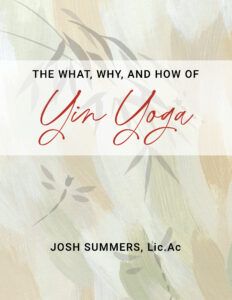Recently, while working on the Oliver Sacks piece, I found myself browsing through Maria Popova’s fantastic website: www.brainpickings.org. For a trove of material on the meaningful life, one need not look any further.
At some point, I came across an article on self-renewal which highlighted this captivating passage from John Gardner:
“We can keep ourselves so busy, fill our lives with so many diversions, stuff our heads with so much knowledge, involve ourselves in so many people and cover so much ground that we never have time to probe the fearful and wonderful world within… By middle life most of us are accomplished fugitives from ourselves.”
The phrase, “accomplished fugitives,” pierced through the veils of my complacency and jolted me awake, as though — in the words of Wodehouse — my “seat had become incandescent.”
At first, I considered how meditation offers the ideal antidote. Rather than running from ourselves, meditation promotes an inward return, a period of repose from being hurled into projection: plans, tasks, lists. An opportunity to step —as Cummings put it: “out of the measurable doing universe into the immeasurable house of being.”
Ah. How nice.
But then it occurred to me that, all too often, we might use meditation to covertly reinforce the agendas of the fugitive: becoming spiritually accomplished fugitives. Often this is called spiritual bypassing, where we use spiritual practice to try and go around the problematic conditions of our lives, hoping to escape challenges and conflicts, searching for a reprieve from the incessant machinations of the ‘monkey-mind.’ Here, in a deft maneuver of spiritual self-deception, we might claim to be ‘reconnecting’ with ourselves, while actively, in fact, continuing the disconnection.
So if we are to practice in a way that does not reinforce the inner-fugitive, how might that look?
For starters, it would entail a shift in perception around the agendas of practice. Rather than holding the perception of meditation as a benign, socially sanctioned form of escapism, meditation — as a development of awareness — might better be reframed to include the myriad manifestations of our multi-self structure; the reminiscences, regrets, and nostalgias of our past selves; the anticipations, aspirations, hopes and fears of our future selves. In other words, all of it is allowed in.
As I’ve suggested elsewhere, the present moment can include our meanderings into the past and future.
Then, perhaps, the fugitive’s running can stop.
And by letting the full spectrum of our psychology into our contemplative process, we’re in a better position to develop a refinement of perspective with regards to the inner life. This, in my opinion, fosters a more robust integration between life and practice; the contrived boundaries between ‘formal practice’ and ‘real life’ either fade or disappear entirely, and we may become more intimately familiar with all aspects of our self — something Derek Wolcott captured perfectly in his poem, Love After Love:
The time will come
when, with elation,
you will greet yourself arriving
at your own door, in your own mirror
and each will smile at the other’s welcome,and say, sit here. Eat.
You will love again a stranger who was your self.
Give wine. Give bread. Give back your heart
to itself, to the stranger who has loved youall your life, whom you have ignored
for another, who knows you by heart.
Take down the love letters from the bookshelf,the photographs, the desperate notes,
peel your own image from the mirror.
Sit. Feast on your life.
Practice Opportunities:

